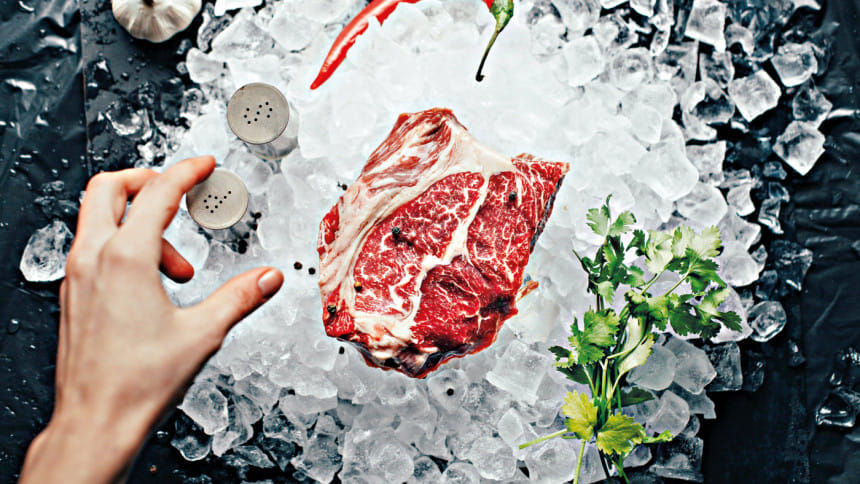From Slaughter to Plate: Meat Storage Magics

Coming Eid, we'll all be celebrating with family and loved ones and surely be consuming a lot of meat. But even after that, you're going to have substantial leftovers, right? Let this article be your guide to safely store your leftover meat for months to come.
Safety is key
Keeping your meat safe is of utmost priority. It goes without saying that you should wash your hands, your chopping boards and knives before and after handling raw meat. This is important because if you're working with raw and cooked meat at the same time, and cross contamination can occur and it has a good chance to spoil both. Always use separate cutting boards and utensils and make sure to store them in different compartments as well.
Adjust the temperature
The first and foremost commandment to storing meat the right way is temperature. It is crucial that you maintain a temperature below 4°C in your refrigerator for short term storage. For longer durations, utilise your freezer and adjust it so the temperature stays below -18°C and store the meat there. Chilled environments deter harmful bacterial growth and let your food stay healthy longer!
Package therapy
Keep in mind that packing meat helps to keep the freshness locked in longer. It is advised that you store them in airtight packaging. Some examples include zip lock bags, aluminium foil and freezer bags to avoid freezer burn. This helps to keep moisture and air away from the meat and potential odours away from the other foods in the fridge as well.
Pro tip: Label each package so you know exactly what and when it was packaged.
Divide and store
In order to be as efficient as possible, divide your meats in smaller portions before you freeze them. Smaller portions not only freeze faster but they also thaw faster too, saving you precious time before cooking them. It also minimises waste because you only need to defrost what you needed rather than picking away at a large portion of frozen meat. Zip lock bags come in handy again as they are a perfect guide to what portion you can store in them.
The art of defrosting
Defrosting can be a time-consuming process. Rushing this procedure will spoil the meat if you're repeating it multiple times. The safest way to defrost meat is by transferring it from your freezer to your fridge and leaving it overnight. This allows the meat to thaw safely because thawing it outside can encourage bacterial growth. If you're in a rush, then place and submerge your frozen meat in a bowl filled with cold water. Change the water every 30 minutes till fully thawed.
Marinating magic
It's always good to store your meat marinated as it not only enhances the flavour of your meats but also prevents bacteria from growing on it. Acidic marinades, with ingredients like citrus juice and vinegar give a good antibacterial effect. Store the meat in a sealed bag and keep it in the fridge for the recommended amount of time. Just keep in mind to discard any leftover marinade and dry your meat thoroughly before you cook it.
Freeze and thaw smartly
When freezing cooked meat, it's important to let the meat cool down completely before you store it in the freezer. This prevents the meat from spoiling quickly in the freezer. When thawing cooked meat, make sure to heat it to at least 74°C to eliminate any potential bacterial growth. For the best results, store cooked meat in small meal-sized portions so it's easy to defrost and freeze them.
Meat storage times
There are actually specific times before the freshness of your meat starts to fade away. It differs from how and where you stored your meat. If you store larger portions of meat in the fridge, it should be good for about three to five days. The freezer stretches this time from three to six months. Smaller portions last about one to two days and about three to four months in the freezer.
Trust your gut
Trusting your gut is as important as following a guideline. While this guideline should cover all bases, if you feel like your meat smells, has a weird texture or appears discoloured, it's always good to be on the safe side and discard it properly. Your senses can best pick out these factors and as such, you should trust them when needed.

 For all latest news, follow The Daily Star's Google News channel.
For all latest news, follow The Daily Star's Google News channel. 



Comments